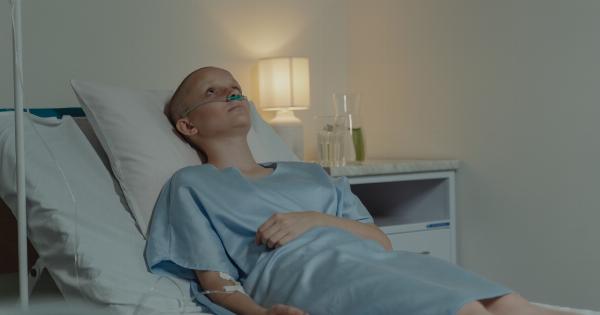Cancer is a complex and devastating disease that affects millions of people worldwide. Despite significant advances in medical research and treatment, cancer remains a leading cause of death globally.
In this article, we will explore the depths of cancer, examining its causes, symptoms, diagnosis, and treatment.
Understanding Cancer
Cancer is a complex disease that involves the uncontrolled growth and spread of abnormal cells in the body. These abnormal cells can form tumors or invade nearby tissues and organs.
Cancer can affect any part of the body and can spread from its original site to other parts of the body through the bloodstream or lymphatic system.
There are many different types of cancer, each with its own unique set of symptoms and treatment options. Some of the most common types of cancer include breast cancer, lung cancer, prostate cancer, and colon cancer.
Causes of Cancer
While the exact cause of cancer is not fully understood, there are several factors that can increase a person’s risk of developing the disease. These include:.
- Genetics – some types of cancer are inherited
- Age – the risk of cancer increases as a person gets older
- Lifestyle factors – such as smoking, alcohol consumption, and poor diet can increase the risk of cancer
- Environmental factors – exposure to certain chemicals and pollutants can increase the risk of cancer
Symptoms of Cancer
The symptoms of cancer can vary depending on the type of cancer and its stage. Some common symptoms of cancer include:.
- Unexplained weight loss
- Fatigue
- Changes in the skin, such as moles or lesions
- Changes in bowel or bladder habits
- Persistent cough or hoarseness
It’s important to note that many of these symptoms can be caused by other conditions, so it’s important to see a doctor if you experience any unusual symptoms.
Diagnosing Cancer
Diagnosing cancer usually involves a combination of physical exams, imaging tests, and laboratory tests. Some common diagnostic tests for cancer include:.
- Biopsy – the removal of a small sample of tissue for examination
- X-ray – a type of imaging test that uses radiation to create images of the inside of the body
- MRI – a type of imaging test that uses magnets and radio waves to create images of the inside of the body
- CT scan – a type of imaging test that uses X-rays and computers to create detailed images of the inside of the body
Treating Cancer
Treatments for cancer can vary depending on the type of cancer and its stage. Some common treatments for cancer include:.
- Surgery – the removal of cancerous tissue
- Chemotherapy – the use of drugs to kill cancer cells
- Radiation therapy – the use of high-energy radiation to kill cancer cells
- Immunotherapy – the use of drugs to help the body’s immune system fight cancer
In some cases, a combination of treatments may be used to treat cancer.
Preventing Cancer
While not all types of cancer can be prevented, there are several things you can do to reduce your risk of developing the disease. Some things you can do to prevent cancer include:.
- Quit smoking
- Drink alcohol in moderation
- Eat a healthy, balanced diet
- Maintain a healthy weight
- Avoid exposure to harmful chemicals and pollutants
The Future of Cancer Treatment
While significant progress has been made in the fight against cancer, there is still much to be done. Researchers are working tirelessly to develop new and more effective treatments for cancer. Some of the promising areas of research include:.
- Targeted therapies – drugs that specifically target cancer cells
- Immunotherapies – drugs that help the body’s immune system fight cancer
- Gene therapies – treatments that target specific genes that are involved in cancer growth
As research continues, we can hope for a future where cancer is no longer a devastating disease.



























